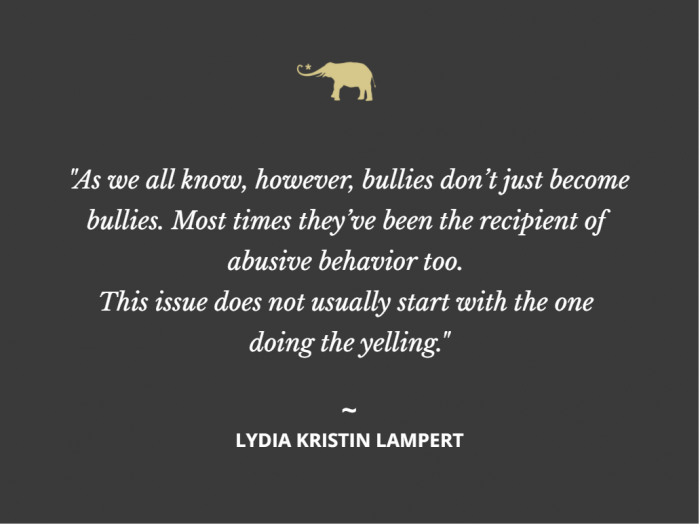There’s nothing like the feel of the crisp fall air, hitting your face as you load into the car, early in the morning, preparing to head out to another away game.
The car is loaded with blankets and chairs, extra shin guards, and sweatshirts. No way you’re going to be caught off guard, this year, when you arrive at the fields for your kid’s next game!
Personally, I have a love-hate relationship with this season. I have a T-shirt that says, “My heart is on that field,” and the heart is filled with the pattern of a soccer ball.
I wear it with pride. I love to watch my son play with the other boys on his team. They are like a fine-tuned machine and have come up through the ranks of travel soccer, and now, they play in an extremely competitive division.
Honestly, I couldn’t care less about the division or level; I just love to watch him play and see the joy he derives from the sport and camaraderie with his teammates. What I dislike—hate even—are the triggers I have to dodge while I try to enjoy his game.
Whistles are drowned out by some parents who insist on yelling and screaming at their children, demeaning them in front of the other parents, their peers, and strangers, and it’s extremely disturbing.
As a nurse, I would consider this bordering on emotional abuse. I try to tune it out, but as someone who experienced emotional abuse when I was young, it’s not such an easy thing to do.
My first inclination is to turn around and tell the person to shut the f*ck up.
I was always a fight not flight kind of girl, and I’d love to go on a verbal round or two with people like this. I have always fought and still fight for the underdog, and nothing brings that out in me more than a grown adult who is verbally attacking a preteen child, just trying to play a game.
I want to warn the parent who’s yelling that if they don’t stop, their child is going to hate them someday—if they don’t already.
My heart aches for the kids who belong to parents such as these.
When I was younger, I was told all of the things that were “wrong” with me. Due to this, my hatred and resentment grew, and my self-confidence dwindled.
I’m going to date myself here, but the first vision I had when I started thinking about this topic was the scene from “Breakfast Club,” where Andrew, aka Sporto, is talking about taping up Larry Lester’s hairy butt cheeks, and how he did it to prove to his father that he was tough and cool.
He retells this emotional story, and the tough wrestler is in tears as he says, “It’s all because of me and my old man. Oh God, I f*cking hate him! He’s like this…he’s like this mindless machine that I can’t even relate to anymore. ‘Andrew you’ve got to be number one! I won’t tolerate any losers in this family. Your intensity is for sh*t! Win! Win!’ You know, sometimes, I wish my knee would give, and I wouldn’t be able to wrestle anymore, and he could forget all about me.”
How many of these kids are going to grow up to feel that way? I’ve heard parents yell at their children to run faster, play harder, question what’s wrong with the child, tell them to get their heads out of their pants, stop celebrating a goal they should have made sooner, and ask what took so long for the child to score.
It’s disgusting, to be frank.
Other parents stand by and laugh awkwardly, but I know deep down inside they, too, must be feeling anguish over what is happening to the heart and spirit of the child on the receiving end.
Words and abusive behavior from playground bullies, disguised as grown adults, make everyone uncomfortable.
Sometimes I wonder if they have any idea how awful they actually sound?
Jana Swart, a Dallas psychologist, states, “At times, some adults don’t even recognize the difference between guiding a child and verbally mistreating them.”
As we all know, however, bullies don’t just become bullies.
Most times they’ve been the recipient of abusive behavior too. As a person who has done a lot of research, participated in a ton of therapy, and has currently been learning about generational trauma, I also realize this issue did not start with the one doing the yelling. I write this piece with optimistic hopes that by sharing some of the risks to the child’s emotional health, I can help to put an end to it for generations to come.
To humanize the perpetrator, seated next to me on the sidelines, I remind myself that the emotional abuse the parent must have gone through as a child had to be just as bad, if not worse. By acknowledging this, I am able to feel a small amount of sympathy for the aggressor, yet I still feel the behavior should not be tolerated.
I want to help, but I’m no longer one for confrontations.
Instead, I decided to come up with a few questions I would have the person ask themselves, and they are as follows:
1. Did you not realize that loudly criticizing your player does not toughen them up or make them perform better?
In fact, it actually does the opposite. When a player is yelled at during a game, they become stressed, and as such, the body releases cortisol, the stress hormone.
Cortisol actually inhibits executive function and affects the player’s performance and reactions. So, please, take a deep breath and reconsider scolding your child publicly for their next misplaced pass.
2. Did you ever consider that your sideline behavior is negatively impacting your child’s teammates too?
Well, guess what? It is!
Research has shown that sideline anger and regular exposure to it also causes distress for a player’s teammates and may cause them to suffer as much as if they were the actual targets of the original criticism.
3. As you are publicly demeaning and verbally critiquing your child for all to hear, did you weigh the risks in the immediate gratification of a goal against the long-term effects of your abuse?
Did you know that kids, who are routinely yelled at and placed under duress, have a much higher chance of suffering from mental health problems in the future? According to Swart, “Pushy parents can create an internal conflict with their child that may lead to anxiety, depression, and rebellion.”
I’ve thought about the best way to handle the situation, and it’s tricky, to say the least. I can only hope that maybe this article will make someone stop, think, and reevaluate their own behavior.
After all, these are children we are talking about, children who are trying to be active and learning what it’s like to be part of a team more than making a goal.
They all strive for love and commendations from us—the parents. Let’s try to remember that next time we get caught up in the competition.
If we crush their spirit and damage their egos, no one will ever come away from the game a winner.







Read 21 comments and reply